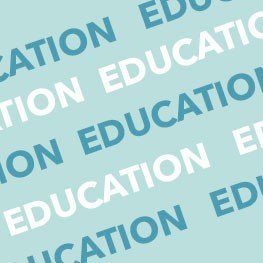
One thing today’s parents are never short on is a never-ending stream of directions on how to raise our children. Hit from every angle with sage advice, ancient words of wisdom and the latest breaking research, it’s a wonder any of us have the guts to even pull our kids out of their cribs in the morning! The Government of Alberta has its own take on all this early education information, and has created a provincial initiative known as ECMap or the “Early Child Development Mapping Project". This commission aims to map how prepared for school all Kindergartners are by the time they start class.
To help determine this, it tests the following five main areas of development:
1. Social Competence
2. Physical Health and Well-being
3. Language and Cognitive Skills
4. Emotional Maturity
5. Communication Skills and General Knowledge
Are the findings of this initiative any more relevant than other research results out there? If you live in Alberta, the answer is ‘yes'. The reason? According to ECMap, it’s within these categories that 27 per cent of all students in Alberta are currently experiencing “difficulty” or “great difficulty” at school. If we want to bring our children out of that danger zone, or even to boost our children from a level of competency to one of mastery, we need to focus on these critical skills.
It is also important for us to remember to keep education fun. Fostering a sense of enjoyment and accomplishment in learning is as important to our child’s development as just about any other single thing we can teach. So, here is your map to ECMap - a cheat sheet of easy ideas and fun activities that you can use to enhance your child’s performance in the above five competencies:
|
|
First Steps |
Leaps and Bounds |
Moving Forward |
|
Social Competence |
Bond with your baby by spending a lot of face-to-face time with them. You’ll both get a feel-good hormone rush from sharing each other’s gazes. |
Stay calm. Show confidence in your child’s ability to problem-solve. They’ll believe in themselves if you do, so support them while they come up with a solution on their own, rather than you doing it for them. |
Model the behaviors you want your child to learn. You are their first and best teacher, and they will learn from your example. |
|
Physical Health and Well-Being |
Provide your baby with lots of safe, open space to play in and explore, and allow them the freedom to discover at their own pace. |
Simple activities like blowing and popping bubbles will help with respiration and fine motor skills at any age! Tracking motion also helps strengthen eye muscles and hand-eye coordination! |
Make time for both organized and unstructured play. Play with your child and don’t allow them to remain inactive or restrained for more than an hour at a time, unless sleeping. |
|
Language and Cognitive Skills |
Talk and sing to your baby! Increasing the number of words your baby hears every day is the most important thing you can do to enhance their readiness to read and write. |
Keep up a running commentary of all things you and your baby see and do in a day. They will learn the names of things and what they’re used for. |
Encourage your child to talk about their day, and share yours. Conversations teach everything from patience, to manners, to new information! |
|
Emotional Maturity |
Respond quickly and sensitively to your baby’s emotions. Laugh when they’re laughing. Soothe while they’re crying. They will learn empathy by witnessing it in you. |
Balance socialization and independent play! Name the emotions your child feels or sees (happy, sad, confused) as they experience them, so they can learn to recognize the way others are feeling. |
Make a plan for the day, share it with your child, then stick to it! This will help them manage their expectations and learn about routines.
|
|
General Knowledge and Communication |
Don’t stress about milestones! Follow your baby’s unique development; everyone grows at their own pace and anxiety can be infectious. |
Maximize your child’s delight and minimize their frustration by focusing on how fun it is to learn new things rather than the rewards of reciting memorized information. |
Read. There is no greater thing you can do for your child than teach them a love of reading! Share books with them, and let them see you reading. So much will follow from this simple skill. |
Alexandra is the Director of Rhyme and Reason Early Learning, a pre-education course specializing in infant and toddler programming. For more information, visit www.rhymeandreason.ca.
Calgary’s Child Magazine © 2024 Calgary’s Child